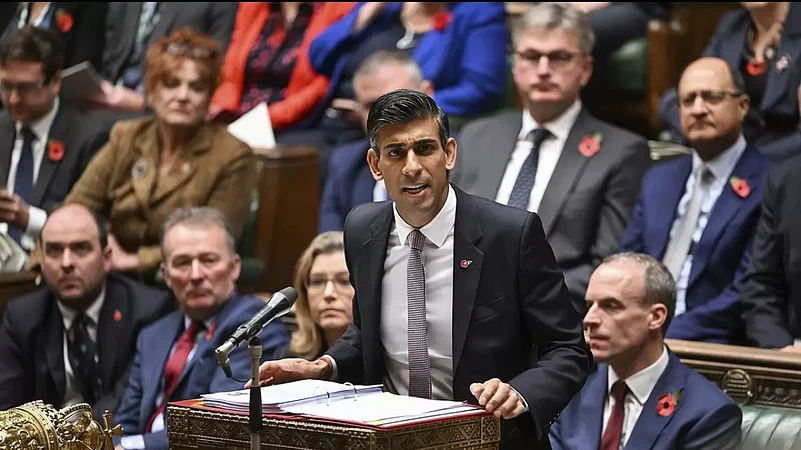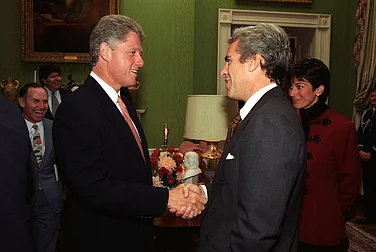British Prime Minister Rishi Sunak on Wednesday laid out a shift in strategy towards achieving the country’s Net Zero climate action targets, including a delay of five years in imposing a proposed ban on petrol and diesel cars to 2035.
In a speech at Downing Street, the British Indian leader reiterated that there is no change to the UK’s commitment to reduce carbon emissions to hit its Net Zero target by 2050 but only a shift towards a more “pragmatic, proportionate and realistic path” to achieving that goal amid a cost-of-living crisis.
Net Zero refers to global commitments that harmful greenhouse gas emissions must be balanced by carbon dioxide removals over a specified time period.
"This country is proud to be a world leader in reaching Net Zero by 2050. But we simply won’t achieve it unless we change,” said Sunak.
“We’ll now have a more pragmatic, proportionate, and realistic approach that eases the burdens on families. All while doubling down on the new green industries of the future. In a democracy, that’s the only realistic path to Net Zero,” he said.
There has been a mixed reaction to his announcements, with environmental groups and even sections of his own Conservative Party questioning the delays. But Sunak stressed the modified approach was necessary to reduce the financial burden on already struggling families.
“There will be resistance – and we will meet it. Because I am determined to change our country and build a better future for our children. Nothing less is acceptable,” added Sunak.
Among the other measures announced include a delay on the ban on installing oil and LPG boilers, and new coal heating, for off-gas-grid homes to 2035, instead of phasing them out from 2026. An exemption to the phase out of fossil fuel boilers, including gas, in 2035, for a switch to low-carbon alternatives and scrapping policies to force landlords to upgrade the energy efficiency of their properties.
The UK's commitment to reach Net Cero by 2050 was written into law in 2019. Downing Street reiterated the changes unveiled this week will not require the UK to change or abandon its upcoming emissions targets and that it will meet its international agreements, including the promises at the COP climate summits in Paris and Glasgow to limit global warming to 1.5 degrees Celsius.
The British government said the UK’s “over-delivery” on reducing emissions provides space to take this changed approach to reaching Net Zero. Sunak also confirmed that “worrying proposals” such as seven recycling bins and taxes on meat and flying will never happen on his watch.
“The Prime Minister has made clear that the plans to meet Net Zero will only succeed if public support is maintained or we risk losing the agenda altogether, unable to meet our goals. The UK will remain the country with the most ambitious, stringent de-carbonisation targets in the world even after these changes are made,” Downing Street claimed.
The Opposition, however, came down heavily against the proposals, with the Labour Party dubbing it an “act of weakness”.
"Delaying the phase out of petrol and diesel cars will add billions in costs to families and damage investor confidence in the UK, as we have seen from the furious business reaction today," said Ed Miliband, Labour’s Shadow Energy Security and Net Zero Secretary.
Lib Dem leader Ed Davey said: "This is a Prime Minister who simply doesn't understand and cannot grasp for Britain the opportunities for jobs and our economy of driving forward with action on clean energy.”





















